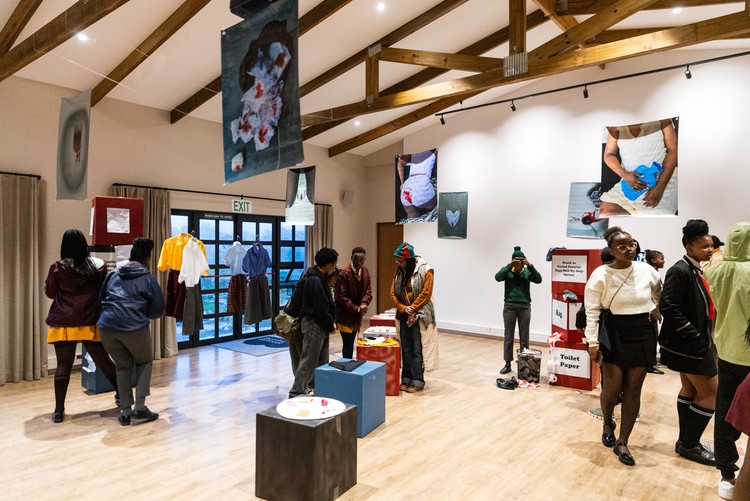
24 June 2024
The Exesheni Exhibition by the I_Menstruate Movement opened at the Bertha Retreat in Franschhoek near Cape Town on Friday. The exhibition highlights the struggles learners face if they do not have access to sanitary products. Photos: Ashraf Hendricks
A survey of girls at 18 schools across the country found that more than 80% did not have regular access to sanitary towels. This finding was presented by the I_Menstruate Movement at the launch of the Exesheni Exhibition on Friday night.
The grassroots research report, “Bleeding in Silence: Barriers to menstrual hygiene among school girls in South Africa”, was published in October 2023. About 540 learners at two high schools in each of the nine provinces participated.
The organisation’s main aim is to eradicate “period poverty” in South Africa.
Founder of the I_Menstruate Movement Tracey Malawana said the Exesheni Exhibition (loosely translated as “that time of the month”) told the stories of menstruation through three generations and looked at how menstrual products have evolved. One photograph of Malawana’s grandmother highlighted that she had used “leaves and cloths”.
Other exhibits included photographs of sanitary pads and toilet paper soaked in blood. There were also a few school uniforms with red stains, symbolising the struggle that some learners face without access to proper sanitary products.
Malawana said the survey found that learners were using rags, cardboard, toilet paper and socks.
Comfort Mokopanele from Tshireleco High School in Kimberley, one of the artists in the exhibition, said, “Many of us do not have access to or money for sanitary pads, so we use some of these things when we get our periods.”
Malawana said the next step in the campaign is to lobby President Cyril Ramaphosa to make some menstruation products available for free.
“The cost of living is too high and menstrual products are too expensive. Parents are forced to choose between buying bread and sanitary pads,” she said.
The Exesheni Exhibition will be in Johannesburg in August for Women’s Month. It will then be taken to a few rural communities in October.
Loosely translated, Exesheni means “that time of the month”.
Grade 9 learner Comfort Mokopanele, from Tshireleco High School in Kimberley, had an exhibit with red-smeared covered toilet paper, a rag and a sock, to show the items many learners have to use during their periods.
Several learners sang and danced outside the exhibition as part of a protest performance with placards which read, “Period poverty ends with me” and “#MenstrualEquity”.
A learner examines a menstrual cup.